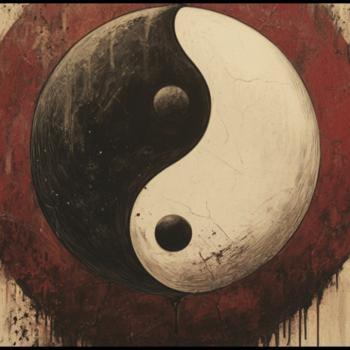And if we are indeed made in the image of our Maker, the boundless creativity of children at play is surely one of the clearest proofs of their nearness to spiritual truths we've too often left behind in our cynical maturity. For the brief years of childhood are the last years of true imaginative freedom (because that's what play is) — the years when pure comedy is possible, when we can send our fantastical creatures off on wild adventures and stretch the universe into goofy new shapes with impunity, away from adult eyes and the chattering criticism of the world.
One of the things I talk about in my school visits and classes is that our imagination is always asking, "What if?" Trust me, no one comes up with better "what if?" questions than a fourth grader, and the best authors of literature "for children" (I believe) are those who have never outgrown this gift. These are the ones who stretch the boundaries of what could be, almost as if they were thumbing their noses at a world that insists, This is how life is, and saying instead, Not necessarily. Imagine if it were different. Imagine lovely monkeys with lollipop paws and bandersnatches and places with names like the Chankly Bore. Imagine little people with green heads and blue hands embarking on epic adventures in unpredictably leaky sailing vessels.
How can we possibly grasp the mystery of God and spiritual realities unless we have first allowed the imagination to pry the lid off what we think of as reality so that the stuff of creation can bubble over in shapes beyond our expectations? My favorite stories by children and for children (in fact, my favorite stories, period) are those that provoke the question, "What if there is more to the world than what I see on the surface?" Such stories make us more open to a world where the marvelous and the miraculous are possible.
According to the Christian tradition, we haven't seen the last of that playful divine creativity that plopped us into the middle of a screwball comedy despite all of humanity's efforts to turn it into a tragic farce. So when I wonder what it might be like when God rolls up his sleeves and unleashes his glee in a redeemed creation — and when I want to know how my role of "sub-creator" (as Tolkien put it) in the present can anticipate that future day — I look to the children, to their magic portals and exploding marshmallows and spicy sea winds, their willingness to play with the pieces of the world they've been given, put them together into new shapes, and take delight in it all.
To be able to look at the world as it is and be able to glimpse the threads of beauty and goodness of what the world will someday become, to be able to imagine a different way of being human on this earth, takes an enormous feat of imagination. This is one of the reasons why encouraging and nurturing the imagination of children is so vitally important: because if we cannot imagine, we cannot hope. And without hope, we are story-less creatures, trapped in a prosaic world in which the pages are torn away one by one and throw into the fire, and no one looks ahead with the joy of discovery, and no one ever peeks at the last page of the book to rest in the assurance of a happy ending. And the children must grow up, and are broken by life as we have all been broken, but hope remembers that the God we cry out to in our distress is also the God who once said, "Let there be a proboscis monkey, and let his magnificent nose fill the childlike with laughter in those dark days of the world when all hope seems lost."
I will leave to the theologians the formidable task of confronting the problem of evil with the concurrent problem of playfulness. In the meantime, I'll be engaged in a liturgy of drawing feathery tentacles and moldy toes with my students, looking forward to the day when I will finally see what childlike, impish gleam of humor in God's imagination produced the duckbill platypus and the leafy seadragon and the blobfish. For the children make me wonder whether this crazy, over-the-top, extravagant creativity we participate in together, this laughing hope, might in fact be the most important thing, the thing that will reach beyond the present age into the age to come. Wild and wondrous world without end. Amen.




